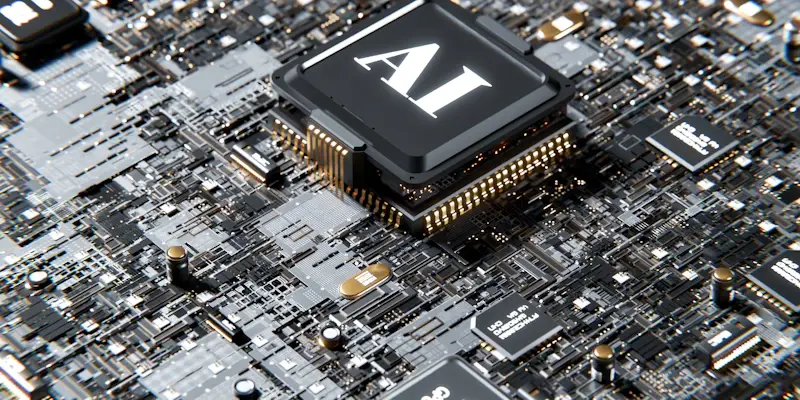The tech world is witnessing a paradigm shift as major companies such as Meta, Microsoft, and Google pour billions into the development of advanced AI chips to power next-generation artificial intelligence technologies. These sophisticated chips are essential for supporting innovations such as deep learning, edge computing, and neural networks. Traditionally, Graphics Processing Units (GPUs) have been the backbone of AI development due to their remarkable parallel processing capabilities. However, as AI applications become more complex and resource-intensive, there is a marked shift towards creating specialized AI processors that promise heightened efficiency and performance. This shift is evident in the pioneering efforts of companies like Google, IBM, and Graphcore, who are developing groundbreaking chip architectures, including Google’s Tensor Processing Unit (TPU) and Graphcore’s Intelligent Processing Unit (IPU).
The Race to Optimize AI Performance
The AI chip market is anticipated to mature significantly by 2025. This maturity will see the focus shift from mere design innovation to an emphasis on cost-effectiveness and performance optimization. To achieve this, tech giants and startups are employing a variety of strategies aimed at enhancing power efficiency, processing speed, and system adaptability. As the competitive landscape intensifies, these strategies will determine which companies emerge as leaders in AI technology. Investments in specialized AI processors reflect the industry’s drive to meet the growing demand for advanced AI capabilities that traditional GPUs cannot sufficiently handle. With a keen focus on performance metrics, these investments signify not just the present potential of AI but also its future trajectory as a transformative technology.
Massive investments, particularly in AI infrastructure, are evidently on the rise. For example, Meta and Google have significantly ramped up their capital expenditures dedicated to AI-enhancing capabilities. Meta announced plans to allocate an additional $10 billion, while Google intends to spend over $12 billion from its quarterly budget on enhancing AI infrastructure. This surge in investment underscores the recognition of AI as a pivotal component of future technology. Moreover, the increased demand for AI processing power has broader implications, such as the impact on the U.S. energy grid, which must adapt to support the rising electricity consumption of data centers. Such considerations highlight the interconnected challenges and opportunities presented by the AI revolution.
The Profitable Growth of AI Technologies
Nvidia, famous for its powerful GPUs, highlights the lucrative potential of the AI chip market. The company’s revenue soared from $8.3 billion to an estimated $24 billion in just two years, underscoring the immense profitability and importance of AI in the tech sector. Despite facing competition from new startups and established tech giants, Nvidia’s sustained success shows the strong demand for advanced processors designed for AI applications. This financial growth also mirrors the rapid advancements in the broader industry as AI models become more integrated into various products and services.
Although some AI startups have not maintained their initial fast growth, the overall AI boom continues, driving considerable progress. The joint efforts of major tech companies and innovative startups are shaping the future of technology through substantial investments and groundbreaking developments. In this highly competitive environment, ongoing innovation and strategic investments in specialized AI processors are crucial for staying ahead. This relentless push to advance AI tech not only demonstrates its transformative potential but also the ongoing ambition to expand the limits of what advanced computing can achieve.

